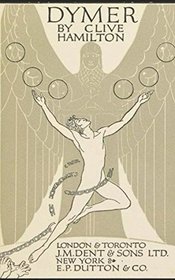Search -
Dymer
Dymer
Author:
Written in 1926 before Lewis' conversion. This is a work of narrative poetry. It is similar in some ways to Lewis's first work "Spirits in Bondage", which was also a poetic work. It has the same dark feeling that the first one did. What is interesting is that the first book is called "Spirits in Bondage", and the cover of this work has a soul br... more »
Author:
Written in 1926 before Lewis' conversion. This is a work of narrative poetry. It is similar in some ways to Lewis's first work "Spirits in Bondage", which was also a poetic work. It has the same dark feeling that the first one did. What is interesting is that the first book is called "Spirits in Bondage", and the cover of this work has a soul br... more »
ISBN-13: 9781973248200
ISBN-10: 1973248204
Publication Date: 11/7/2017
Pages: 107
Rating: ?
ISBN-10: 1973248204
Publication Date: 11/7/2017
Pages: 107
Rating: ?
0 stars, based on 0 rating
Publisher: Independently published
Book Type: Paperback
Members Wishing: 1
Reviews: Amazon | Write a Review
Book Type: Paperback
Members Wishing: 1
Reviews: Amazon | Write a Review
Genres:
- Christian Books & Bibles >> Literature & Fiction >> Classics & Allegories
- Christian Books & Bibles >> Literature & Fiction >> Fantasy




